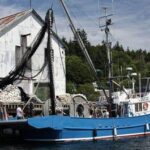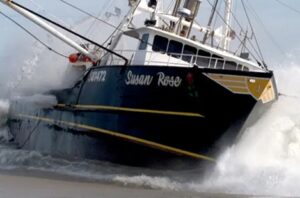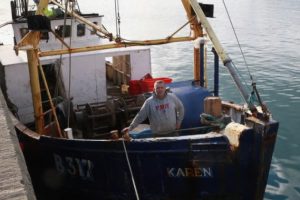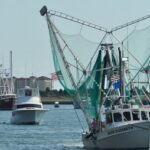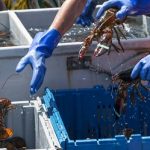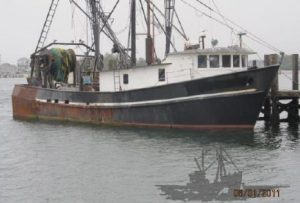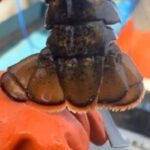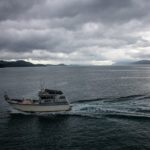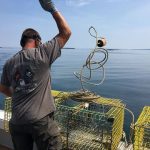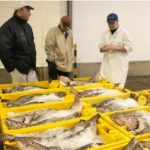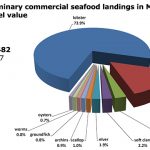Tag Archives: Tasmania
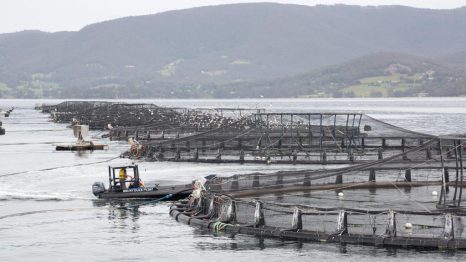
Meanwhile, in Tasmania – Drag fish farm regulation into 21st century
Sea based fish farms dump tonnes of faeces into the water. Think of them as a large toilet that does not flush. I cannot think of an industry in Tasmania other than aquaculture that is allowed to dump an unlimited amount of pollution in our waterways. Not only is there no limit on the amount of faeces salmon farms can dump in coastal waters, Tasmania also lacks science-based regulations to determine which parts of our coastline are suitable for salmon farms. International research shows that if you put fish farms in bays and harbours, where the water is shallow and current speed is low, fish faeces accumulates under cages, killing everything below them. Nitrogen discharged into the water column creates risk of harmful algal blooms, like the types we have seen worsening with increased salmon farms in the Huon and D’Entrecasteaux Channel. Other countries have responded to this research by offering incentives to move farming onshore. Read the story here 12:46
Big southern rock lobster catches off Tasmania’s west coast
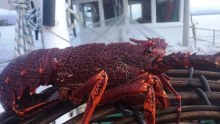 Tasmanian rock lobster fishermen are celebrating some of the biggest catches of deep water lobster in about six years. Stuart Charles from Stanley Fish on Tasmania’s north west, said the big catches off the south-west coast were a good sign of the sustainability of fish stocks. “You know the deep water fish is quite phenomenal actually, we haven’t seen catching like this in five or six years,” Mr Charles said. “The sheer amounts of fish that guys are catching is quite amazing. Listen, and Read the article here 10:42
Tasmanian rock lobster fishermen are celebrating some of the biggest catches of deep water lobster in about six years. Stuart Charles from Stanley Fish on Tasmania’s north west, said the big catches off the south-west coast were a good sign of the sustainability of fish stocks. “You know the deep water fish is quite phenomenal actually, we haven’t seen catching like this in five or six years,” Mr Charles said. “The sheer amounts of fish that guys are catching is quite amazing. Listen, and Read the article here 10:42
Company aims to restore Tasmania’s squid fishing industry to its glory days
 A Tasmanian woman has partnered with the Commonwealth Government to resurrect the once booming Tasmanian squid industry. Fishermen call them the weeds of the sea because they are the most abundant species in the ocean. But 30 years ago the squid trade was thriving in Tasmania, with annual hauls of up to 8,000 tonnes and strong Japanese interest in the sector. Debbie Wisby runs one of the only remaining Tasmanian squid fishing companies, Aqua Marine, with her husband Glen. Read the rest here 16:02
A Tasmanian woman has partnered with the Commonwealth Government to resurrect the once booming Tasmanian squid industry. Fishermen call them the weeds of the sea because they are the most abundant species in the ocean. But 30 years ago the squid trade was thriving in Tasmania, with annual hauls of up to 8,000 tonnes and strong Japanese interest in the sector. Debbie Wisby runs one of the only remaining Tasmanian squid fishing companies, Aqua Marine, with her husband Glen. Read the rest here 16:02







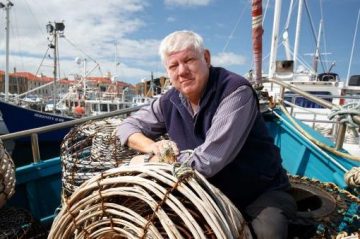 Tasmania’s rock lobster fishermen are a hardy bunch, weathering everything from wild storms to toxic algal blooms, but they have been blindsided by a wave of costly red tape. Third- and fourth-generation rock lobster fishermen who have built an $85 million-a-year trade, mostly via exports to Asia, say new regulations at both state and federal levels threaten chaos. Changes to state regulations proposed from March next year will force rock lobster fishermen to unload their catch in the same area it is caught. While designed to prevent fishermen taking extra lobsters from capped catch areas on their journey home, fishermen say the rule will force them to unload hundreds of kilometres away from their home ports and buyers. Like other fishing industries, they also face massive hikes — up to 116 per cent — in marine safety compliance fees, due to a federal takeover of the role by the Australian Maritime Safety Authority. They believed the state change was a lazy means of making policing easier for fisheries management. “We are not criminals and we shouldn’t be treated like criminals,” said Mr Parker’s brother and fellow rock lobster fisherman, John Parker. A submission by the Tasmanian Rock Lobster Fisherman’s Association describes the state changes as “overly bureaucratic, burdensome and punitive”, as well as unjustified, given there was no evidence of a compliance problem.
Tasmania’s rock lobster fishermen are a hardy bunch, weathering everything from wild storms to toxic algal blooms, but they have been blindsided by a wave of costly red tape. Third- and fourth-generation rock lobster fishermen who have built an $85 million-a-year trade, mostly via exports to Asia, say new regulations at both state and federal levels threaten chaos. Changes to state regulations proposed from March next year will force rock lobster fishermen to unload their catch in the same area it is caught. While designed to prevent fishermen taking extra lobsters from capped catch areas on their journey home, fishermen say the rule will force them to unload hundreds of kilometres away from their home ports and buyers. Like other fishing industries, they also face massive hikes — up to 116 per cent — in marine safety compliance fees, due to a federal takeover of the role by the Australian Maritime Safety Authority. They believed the state change was a lazy means of making policing easier for fisheries management. “We are not criminals and we shouldn’t be treated like criminals,” said Mr Parker’s brother and fellow rock lobster fisherman, John Parker. A submission by the Tasmanian Rock Lobster Fisherman’s Association describes the state changes as “overly bureaucratic, burdensome and punitive”, as well as unjustified, given there was no evidence of a compliance problem. 


























